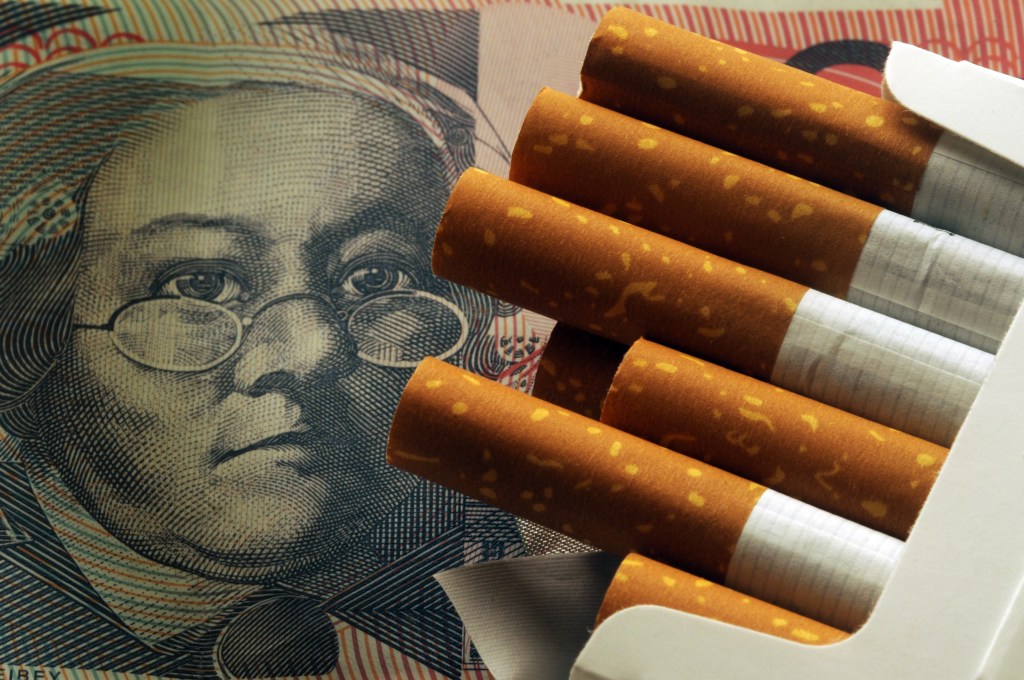The tobacco excise rate increased by 12.5% on 1 September 2015. This is the third of four planned excise increases. The fourth increase of a further 12.5% will be introduced on 1 September 2016. The latest price hike means consumers could be paying up to $3.05 extra for a pack of 50 cigarettes, while even the cheapest 25 packs will now cost in excess of $20. This makes the price of cigarettes in Australia among the most expensive in the world.
These increases, introduced by the Rudd Labor government in 2013 and preserved by the current Liberal government, were introduced in response to research published by the International Agency for Research on Cancer in 2011. The research found that “increasing tobacco prices, through taxation, is one of the most effective measures that governments can take to reduce premature death and disease due to smoking.”
According to the Department of Prime Minster and Cabinet, sharp price increases, such as those implemented through annual excises, have also been shown to decrease tobacco consumption more effectively than frequent, but small increases.
Tobacco companies offer a different perspective. Simon Dowding, spokesperson for Phillip Morris Limited has reiterated that the excise will further consolidate the black market saying “these successive tobacco tax hikes make Australia a lucrative target from organised crime gangs involved in the smuggling, growing and selling of cheap, illegal tobacco.”
The press release issued by Phillip Morris Limited on 31 August 2015 cites KPMG analysts who last year stated that Australia’s tobacco black market has grown by nearly 30% in two years, accounting for 14.5% of total tobacco consumption in 2014.
While Mr Dowding congratulated the work that the Australian Border Force, Australia Taxation Office, Australian Federal Police and State Police have done to crackdown on the black market, he added that “the government needs to reassess the tax and regulatory measures, which have created the environment for this insidious trade.”
British American Tobacco Australia (BATA) spokesperson Scott McIntyre would mean that the three million Australian smokers are likely to adapt by looking for cheaper alternatives to the more expensive, well-known brands. Mr McIntyre said “the low priced cigarette segment has grown 94 per cent in the last five years and 16 per cent in just the last six months mainly [because of] this series of large excise increases.”
Mr McIntyre added, “we do not believe the intention of the government’s ad hoc tax increase is to cause increased competition at the bottom end of the market”. However, the actual effect is such that the tobacco market is “now at a point where the low priced segment makes up 54 per cent of all legal sales.”

